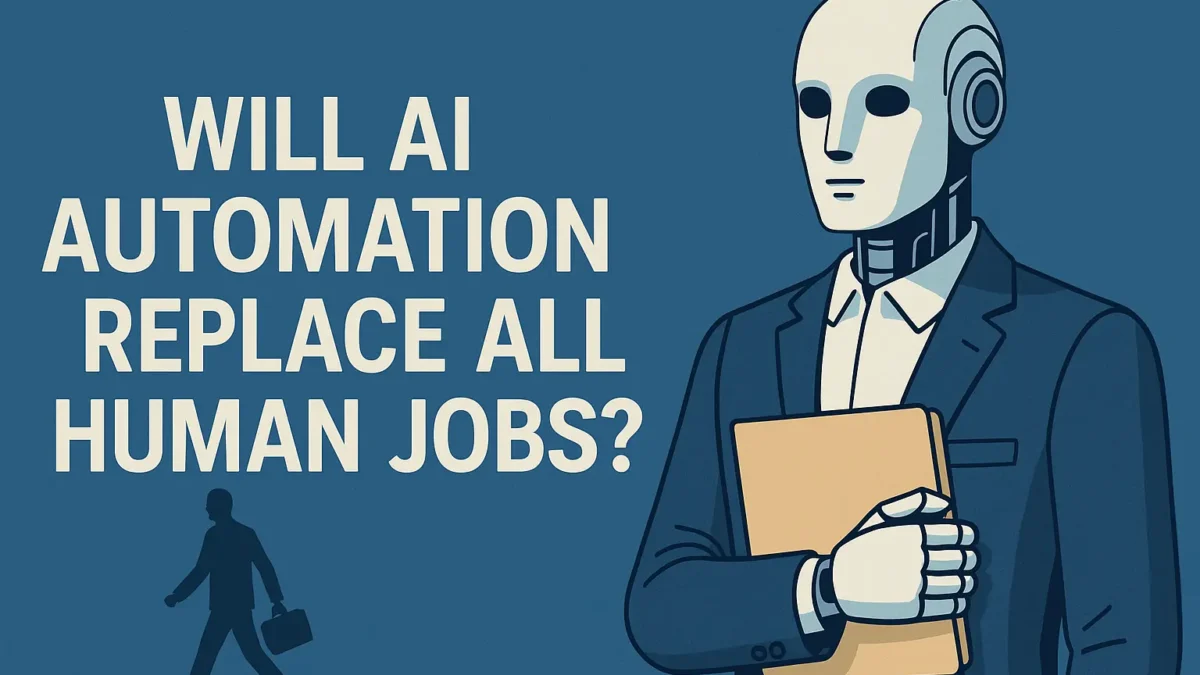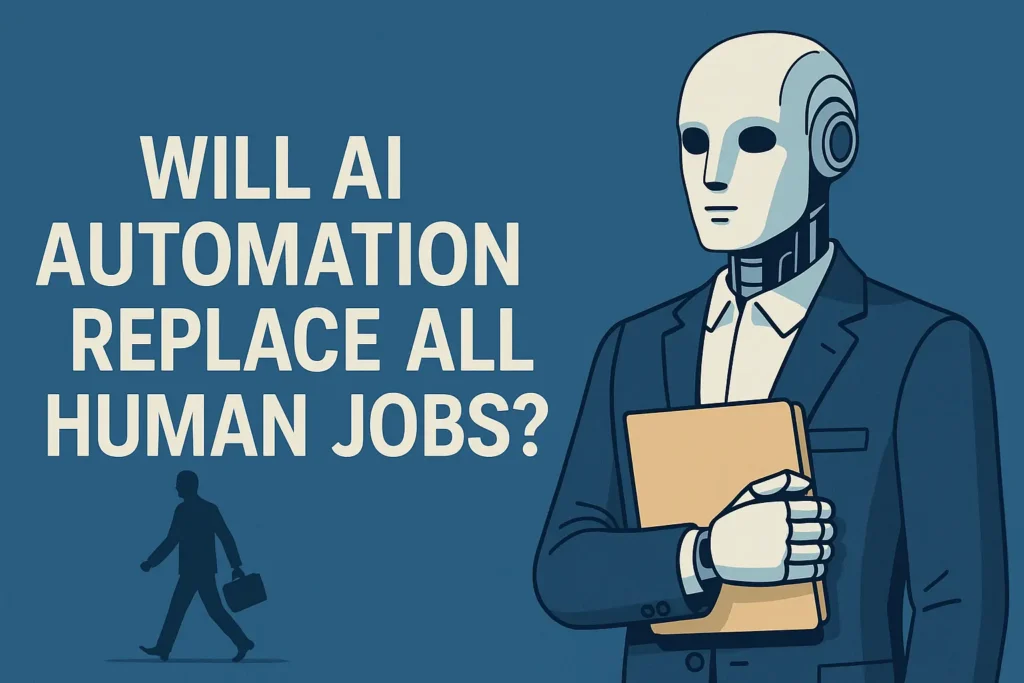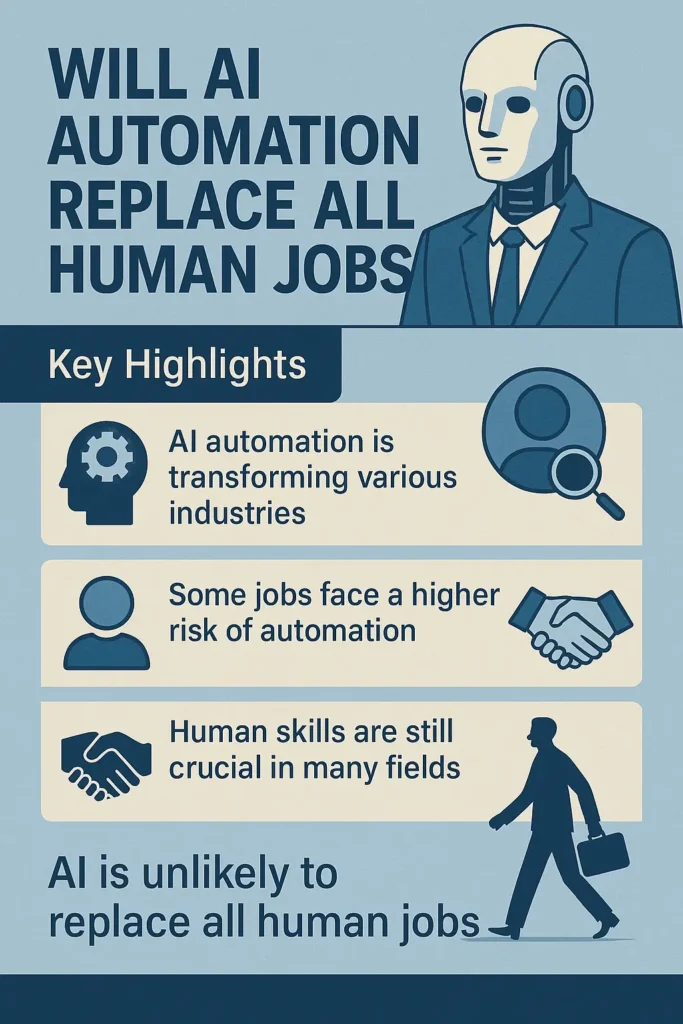
AI Automation Revolution: New Startup Aims to Replace Workers

The future of work is changing faster than most people expected. A new startup, Mechanize, has stepped into the spotlight with a bold and controversial mission: to automate every job that exists today using artificial intelligence. Founded by AI researcher Tamay Besiroglu, the company believes that AI automation can take over all human labor—from the most basic to the most complex. The idea has sparked intense reactions, both hopeful and critical. Some see it as the next step in progress. Others see it as a threat to livelihoods and society as we know it.

Key Highlights
- Mechanize’s Mission: Full automation of all human labor through AI.
- Founder’s Background: Created by Tamay Besiroglu, who also founded the research nonprofit Epoch.
- Controversy: Concerns about conflict of interest between Mechanize and Epoch.
- Focus Area: Starting with white-collar jobs before possibly expanding into other areas.
- Investor Support: Backed by big names like Nat Friedman and Jeff Dean.
- Promise vs. Risk: Proposes economic growth but raises fears about mass unemployment.
You can also read our recent articles on Netflix’s Q1 2025, Bitcoin Stays Strong Amid Tariff, Tariff, Trade War and Recession, Nvidia AI Powerhouse, DeepSeek’s AI Power, China’s AI shocks the Tech World
What Is Mechanize Trying to Do?
Mechanize is not just another AI startup. Unlike others that focus on specific industries or tools, Mechanize has one massive goal: to enable AI agents to perform any job a human can do. Whether it’s analyzing financial reports, managing projects, coding software, or making business decisions, the company wants AI to step in and do it faster, cheaper, and possibly better. Besiroglu argues that this level of AI automation could unlock tremendous economic value by replacing human wages with AI-powered productivity. He estimates the global labor market to be worth over $60 trillion annually—money that could be redirected through AI agents.
Why It’s Controversial
Tamay Besiroglu is also the founder of Epoch, a nonprofit known for evaluating AI’s impact on society and economy. Epoch was trusted as a neutral player in the AI space, providing research and benchmarks used by major companies like OpenAI. When Besiroglu announced Mechanize, many felt betrayed. Critics said the line between research and profit had been crossed. Was the nonprofit’s work secretly laying the groundwork for a profit-driven venture? Some of his own colleagues at Epoch even expressed public disappointment, suggesting the startup has caused a “communications crisis” within the team.
The Divide in the AI Community
The announcement created a rift in the AI world. On one hand, some technologists see Mechanize’s goal as visionary. If successful, it could free people from dull, repetitive jobs and open the door to a future of creativity and leisure. On the other hand, many worry it could lead to massive unemployment, economic inequality, and social instability. A key concern is whether people will still earn money if machines do all the work. Without wages, how will people buy the goods and services AI creates?
Is This Technically Possible Yet?
Right now, full AI automation is more of a vision than a reality. Today’s AI agents are not ready to handle long-term, complex tasks on their own. They often forget instructions, make simple errors, and lack the reasoning skills needed for real-world jobs. Mechanize wants to improve these agents by building better training environments, smarter evaluation tools, and more reliable digital systems. They aren’t alone. Tech giants like Microsoft, OpenAI, and Salesforce are working on similar platforms, hoping to develop agents that can operate like reliable digital workers.
What Does It Mean for You?
If Mechanize succeeds, the idea of a “career” may completely change. People might no longer need to work to survive. Instead, income could come from investments, ownership of AI systems, or government support. While this sounds ideal for some, others worry about access. Will only the rich own the AI agents? Will people without assets be left behind? Mechanize claims humans will still play roles that AI can’t fill, but it’s not clear what those roles will be—or how many of them will exist.
Conclusion
The mission of AI automation is no longer just about improving work—it’s about redefining it. Mechanize represents both the promise and peril of advanced artificial intelligence. It dares to imagine a future where machines handle everything, and humans enjoy the results. Whether this vision becomes a utopia or a nightmare depends on how society adapts. Policies, ethics, and access will all play a role. One thing is certain: this conversation is just beginning, and we all need to be part of it.
Frequently Asked Questions (FAQ)
Q: What is AI automation?
A: It’s the process of using artificial intelligence to perform tasks traditionally handled by humans. This includes jobs in administration, customer service, analysis, and even creative work.
Q: What does Mechanize aim to do with AI automation?
A: Mechanize wants to automate all types of human labor using AI agents—starting with white-collar work and eventually scaling to the entire economy.
Q: Why are people upset about the launch of Mechanize?
A: Critics argue that the startup undermines the credibility of Epoch, the nonprofit founded by the same person. Many feel that unbiased research was used to support a private company’s goals.
Q: Could this mean no more jobs for humans?
A: Possibly. Mechanize believes this could lead to higher living standards and new sources of income. But others fear it could lead to unemployment and economic inequality.
Q: Is this future far away?
A: AI still has a long way to go. Current systems struggle with complex or long-term tasks. But with rapid innovation, it might arrive sooner than expected.
Discover the future of creativity with AI – explore how artificial intelligence is transforming the way we think, create, and innovate. Don’t miss out on this game-changing shift!
